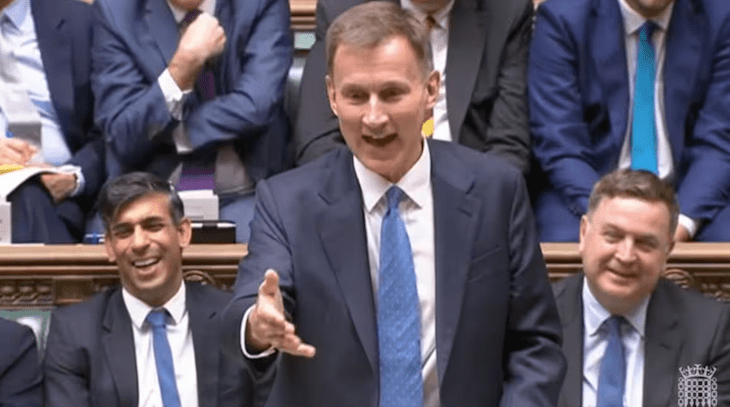Jeremy Hunt’s March Budget was an exercise in Big State Toryism. It lacked meaningful tax cuts, was full of new spending promises, and was estimated by the Office for Budget Responsibility (OBR) to take the ratio of public spending to GDP to ‘43.4 per cent, its highest sustained level since the 1970s’. But today’s Autumn Statement, the Chancellor told the Commons today, was going to be different. Framing the fiscal update as an ‘Autumn Statement for Growth’, Hunt began his announcement by insisting that ‘our choice is not big government, high spending and high tax because we know that leads to less growth, not more. Instead we reduce debt, cut taxes and reward work’.
What followed was a series of concrete tax cuts for both businesses and workers. Hunt was working with a £27 billion fiscal windfall calculated by the OBR – more than four times the amount he previously thought he’d be working with.

Get Britain's best politics newsletters
Register to get The Spectator's insight and opinion straight to your inbox. You can then read two free articles each week.
Already a subscriber? Log in







Comments
Join the debate for just £1 a month
Be part of the conversation with other Spectator readers by getting your first three months for £3.
UNLOCK ACCESS Just £1 a monthAlready a subscriber? Log in